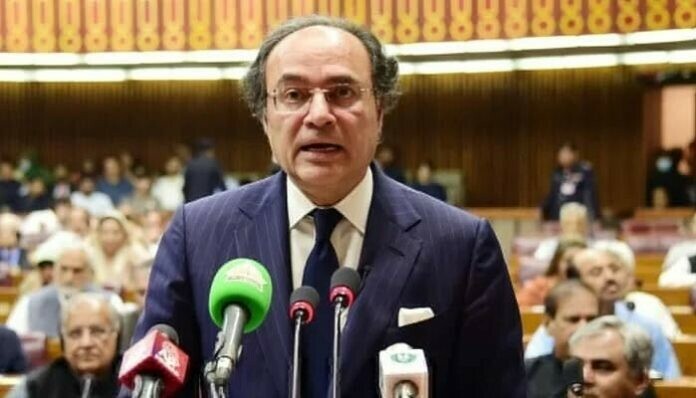Federal Minister for Finance and Revenue, Senator Muhammad Aurangzeb, has called for sweeping reforms to the global financial architecture and stronger development support for vulnerable economies, as he represented Pakistan at the plenary session of the Fourth International Conference on Financing for Development (FFD4) held in Sevilla, Spain.
The conference, convened to address the widening global gap in sustainable development financing, served as a platform for countries to present national priorities and expectations. In his address, Senator Aurangzeb outlined Pakistan’s economic reform efforts, key challenges, and development goals, while urging the global community to adopt coordinated measures based on equity, inclusivity, and solidarity.
He acknowledged the complex pressures facing developing nations—including rising debt vulnerabilities, intensifying climate shocks, and the reversal of development gains—and stressed that urgent international action was required to close the Sustainable Development Goals (SDG) financing gap. While praising earlier milestones such as the Monterrey, Doha, and Addis Ababa conferences for laying the foundations of a more inclusive global financial system, he noted that much remains to be done to translate those commitments into mechanisms that deliver concrete outcomes.
Senator Aurangzeb welcomed the renewed global resolve reflected in the ‘Compromiso de Sevilla’ and commended its forward-looking framework. He said the commitments laid out in Sevilla—including the doubling of support for domestic resource mobilisation, reversal of aid cuts, and expansion of concessional finance beyond GDP criteria—must be implemented swiftly. He also highlighted the importance of enhancing multilateral development bank lending, promoting local currency lending, and re-channeling unused Special Drawing Rights (SDRs) through structured frameworks.
He specifically called for accelerated action on debt reform, including the creation of an institutional platform to support liquidity and debt management, a borrower-focused mechanism to strengthen the voice of developing countries, and the launch of a formal intergovernmental process under the United Nations to address deficiencies in the current debt architecture.
Aurangzeb told the international gathering that despite facing a series of external shocks—from the pandemic to climate-induced disasters—Pakistan was advancing wide-ranging domestic reforms. He introduced Pakistan’s new five-year National Economic Transformation Plan titled ‘Uraan Pakistan’, anchored in five core pillars: Exports, E-Pakistan, Environment, Energy and Infrastructure, and Equity. He explained that through consistent macroeconomic discipline, the government had achieved a primary budget surplus, brought inflation under control, and lowered the country’s debt-to-GDP ratio.
He added that Pakistan is increasing domestic resource mobilisation by expanding the tax base, digitalising the tax administration, and improving public financial management. The goal, he said, is to raise the tax-to-GDP ratio to over 13 percent in the medium term. Senator Aurangzeb further stated that the country is actively promoting green and Islamic finance, advancing financial inclusion via digital infrastructure, and seeking to attract greater foreign investment through a new national investment policy and the Special Investment Facilitation Council.
Earlier in the day, the finance minister co-chaired the Multi-Stakeholder Roundtable 2 session on “Leveraging Private Business and Finance” alongside Canadian Deputy Minister of International Development Christopher MacLennan. The discussion focused on how private finance and innovation could be better mobilised to support sustainable development and economic resilience. In his opening remarks, Senator Aurangzeb emphasised that public funds alone cannot bridge the development financing gap, and that private capital—aligned with sound public policy—is key to scaling up impact.
He stressed the need to enhance domestic resource mobilisation, deepen capital markets linked to SDGs, and create enabling policy environments to de-risk and attract private investment in sectors such as climate resilience, housing, and small business finance. He underscored the importance of regulatory predictability, coherence, and incentive frameworks that make private sector participation viable.
Highlighting the potential of innovative tools, Senator Aurangzeb advocated for mechanisms such as credit guarantees, outcome-linked bonds, debt-for-climate swaps, and catalytic first-loss instruments. He said that public funds must be used strategically to unlock larger flows of private and philanthropic capital.
In his closing remarks, he reinforced that the global objective must be to mobilise not only more finance, but smarter and fairer finance. He called for institutional strengthening, better alignment of fiscal policy with SDG goals, reform of credit rating methodologies to reflect development and climate realities, and greater multilateral support for blended finance and technical assistance. He also urged countries to embed these new financing approaches into their national SDG strategies and investment frameworks.
Concluding his interventions, Senator Aurangzeb issued a strong call for global solidarity. He said sustainable development cannot be achieved without an international financial system that is fair, inclusive, and responsive to the real needs of developing countries. He reaffirmed Pakistan’s commitment to the principles of the Compromiso de Sevilla and its willingness to work alongside the global community to ensure that no country is left behind in the pursuit of shared prosperity.




